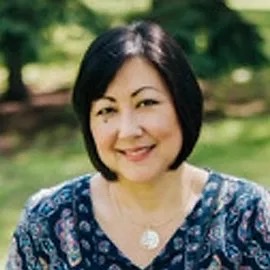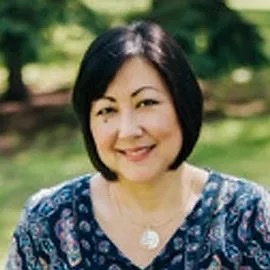
Dr. Beach:
When I founded Open Mind Health, one of the things that I sensed was the idea that there had to be more than medications and talk therapy to address mental health concerns. I knew that complementary, holistic approaches were probably part of the solution. So, with the theme of my personal story in mind, what was the initial spark that was the inspiration for your journey into a career in hypnotherapy?
Tannis Butters:
My lead into hypnotherapy followed my success as a client, actually, when I sought help for a fear of public speaking. With each session, I felt more ease and motivation to overcome the fear, and I also noticed a general feeling of wellbeing. I was fascinated to learn more and to help others!
Dr. Beach:
I would like to learn more about you, and I think our readers might like to as well. We spoke about the why you entered your field of practice. I am wondering if you could share to the extent you are comfortable, if there were any life events, crises, or epiphanies that may have nudged you towards this field. What personal stories could you share?
Tannis Butters:
My sessions for fear of public speaking took me on a journey back to when I was 5 years old. I recalled my first memory of my father violently raging at my mother and how I wanted desperately to tell him to stop, but was so fearful I couldn’t find my voice; an experience that would repeat throughout in my childhood. I came to appreciate my fear of speaking up was my subconscious mind’s way of protecting me from my father’s wrath, but longer needed in my adult, professional life.
Dr. Beach:
Many of our readers may not be familiar with hypnotherapy. Can you explain what it is, what it is not?
Tannis Butters:
Well, it’s not mind control, magic or woo-woo! Hypnotherapy is a natural healing modality that allows subjects to enter a theta brain wave state, which can be associated with higher levels of creativity, stress reduction and contentment. By applying techniques like guided relaxation, focused attention, processing and positive suggestion, hypnotherapy can help clients achieve desired outcomes over a few in-person or virtual sessions.
Dr. Beach:
I have a general sense that those of us who enter the healing professions generally want to help others be the best versions themselves. For me, I would say that is definitely true, and I am guessing you might feel the same. What kinds of breakthroughs or personal evolution stories have been most significant to you in the course of your work?
Tannis Butters:
Clients visit for many different reasons and I’m always amazed by the power of the subconscious mind to help people achieve their goals. I’ve witnessed military personnel eliminate panic attacks, pain suffers reduce their reliance on prescription medications, sexual assault victims find relief from traumatic memories, would-be writers publish books, and many more personal evolution stories.
Dr. Beach:
It sounds as though we both have been fortunate to witness the exhilarating change that can happen when a client experiences healing. Based on your experiences with clients, can you tell me what particular types of mental health concerns are most responsive to your work? This could include anxiety, hopelessness, or any number of manifestations of suboptimal mental health. In addition, are there certain conditions that do not respond as well to your efforts?
Tannis Butters:
Hypnotherapy has a wide range of applications such as: reducing stress and anxiety, trauma healing, eliminating fears fears and phobias, managing pain, improving sleep, and controlling unhelpful habits. In hypnosis a person enters a state of safety and rest when the parasympathetic nervous system is activated. In this state, one can experience higher problem-solving abilities and improved immune and digestive system functioning – powerful benefits for mind and body. It may not be the best approach for people experiencing hallucinations or under the influence of heavy drugs or alcohol; however.
Dr. Beach:
As you are a holistic practitioner, I suspect you also endeavor to work on yourself and raise your consciousness in your everyday world. If you had three suggestions to share with our audience as to how they could best advance their personal evolution, what would your top three be?
Tannis Butters:
- Experience more of the things you enjoy
- Work at cultivating a mindset of gratitude everyday
- Surround yourself with supporters, peacemakers and up-lifters
Dr. Beach:
I am very interested to hear your views regarding the future of your profession and its place in the overall healthcare continuum. Do you see trends of wider acceptance, professionalization, insurance coverage, and possible greater integration in healthcare? What are your thoughts on these themes, and more?
Tannis Butters:
I think hypnotherapy will see an uptick in all of these areas. I am encouraged by the forward-thinking doctors who are starting to integrate holistic modalities into their patient care plans and hope to see further standards for training and compliance within my profession, which would lead to broader inclusion by insurance companies and employee assistance programs.
Dr. Beach:
Thank you very much for sharing your thoughts with our readers and me. It has been truly enjoyable to spend some time with you today, and I hope we will meet again.
Tannis Butters:
I have enjoyed it too. Thank you.
Articles:


